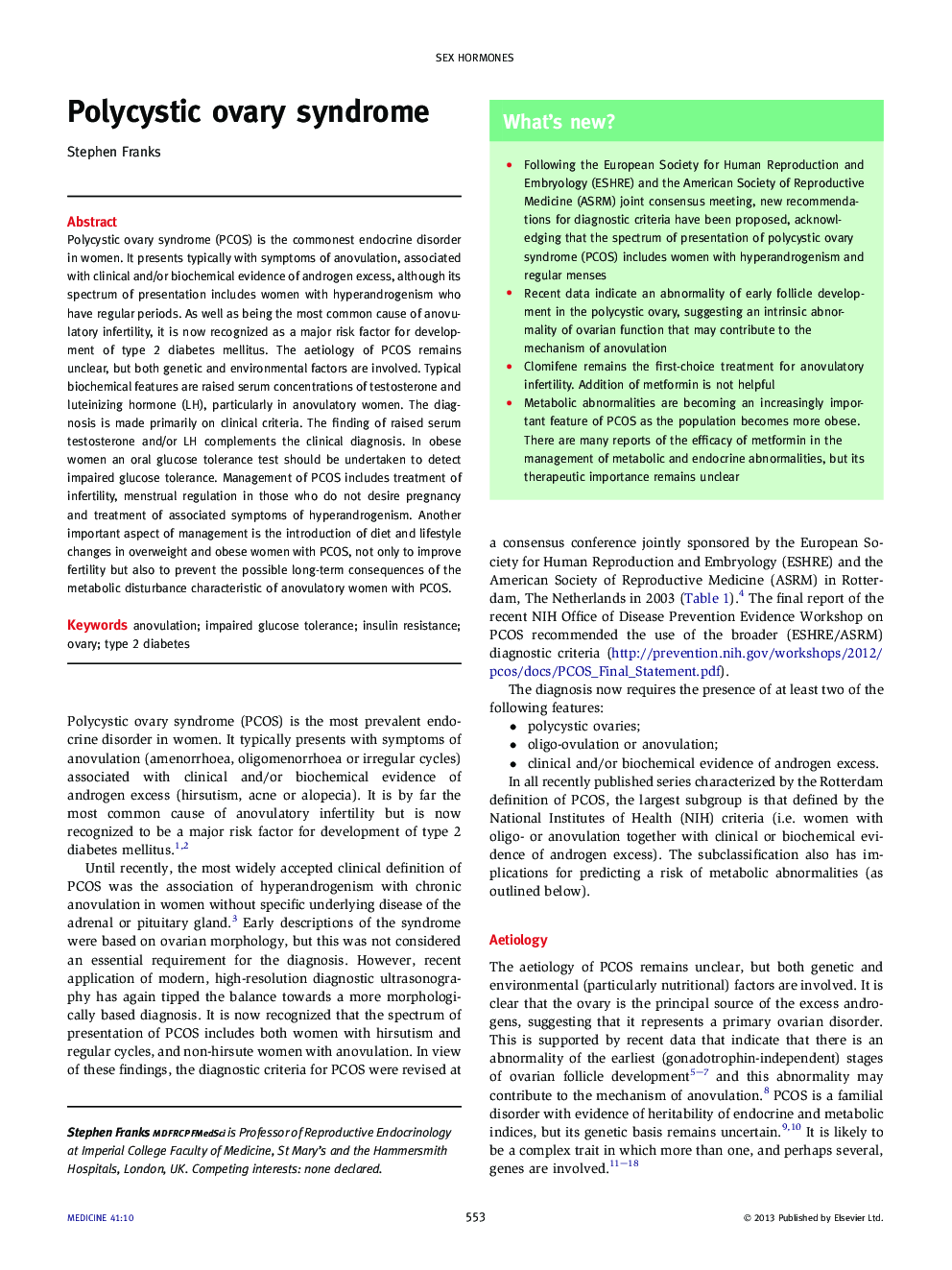| Article ID | Journal | Published Year | Pages | File Type |
|---|---|---|---|---|
| 3803802 | Medicine | 2013 | 4 Pages |
Polycystic ovary syndrome (PCOS) is the commonest endocrine disorder in women. It presents typically with symptoms of anovulation, associated with clinical and/or biochemical evidence of androgen excess, although its spectrum of presentation includes women with hyperandrogenism who have regular periods. As well as being the most common cause of anovulatory infertility, it is now recognized as a major risk factor for development of type 2 diabetes mellitus. The aetiology of PCOS remains unclear, but both genetic and environmental factors are involved. Typical biochemical features are raised serum concentrations of testosterone and luteinizing hormone (LH), particularly in anovulatory women. The diagnosis is made primarily on clinical criteria. The finding of raised serum testosterone and/or LH complements the clinical diagnosis. In obese women an oral glucose tolerance test should be undertaken to detect impaired glucose tolerance. Management of PCOS includes treatment of infertility, menstrual regulation in those who do not desire pregnancy and treatment of associated symptoms of hyperandrogenism. Another important aspect of management is the introduction of diet and lifestyle changes in overweight and obese women with PCOS, not only to improve fertility but also to prevent the possible long-term consequences of the metabolic disturbance characteristic of anovulatory women with PCOS.
